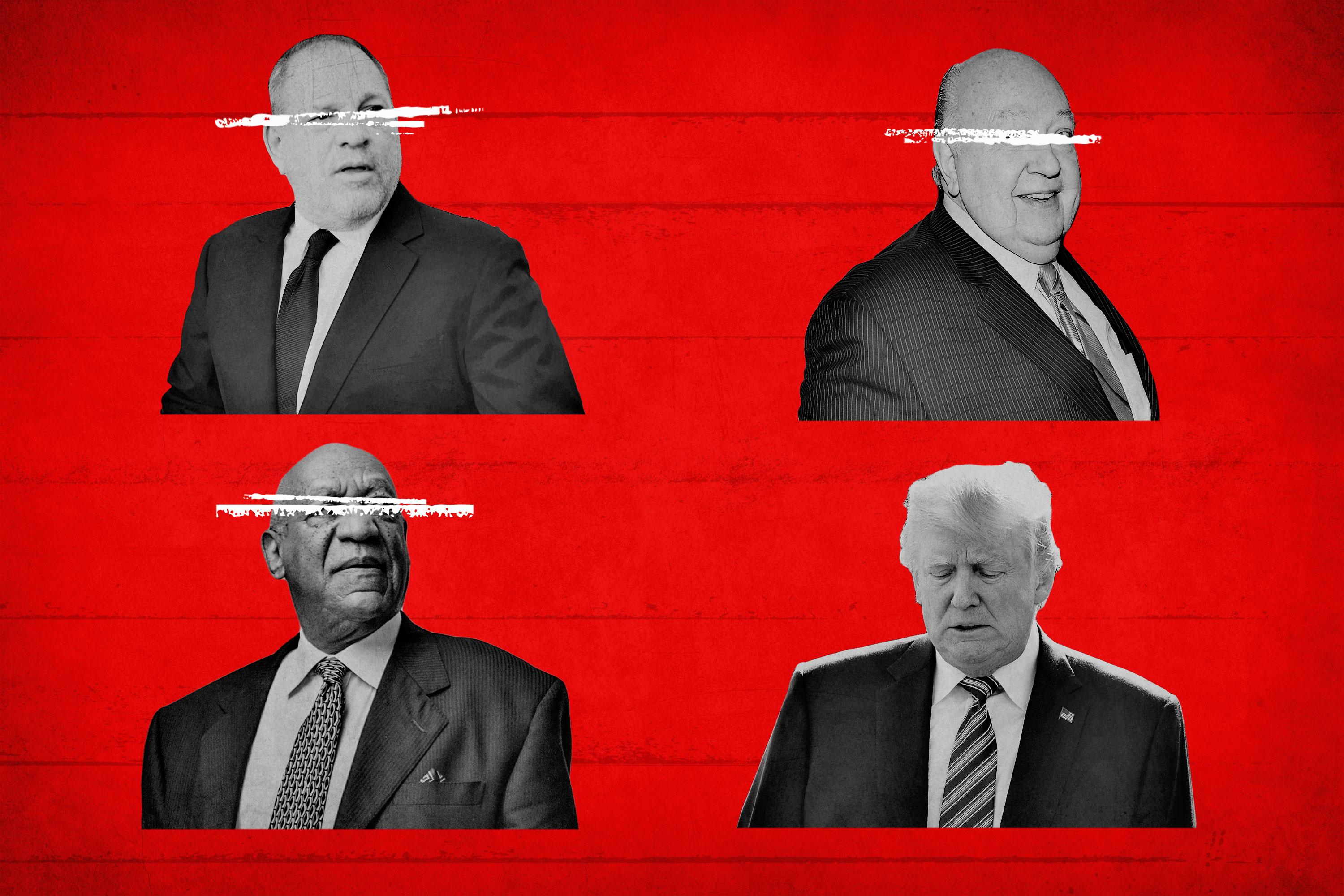What the Harvey Weinstein Nightmare Changes, and What It Does Not
It is difficult to know whether the producer’s downfall is a hopeful development or a sign that abusers like Weinstein, Roger Ailes, and Bill Cosby are held accountable only after their power wanes
For Harvey Weinstein, the past week has been a career-staining blitz. On October 5, The New York Times reported that multiple women had accused him of sexual harassment. In the piece, the women describe encounters with Weinstein in which he exposed himself to young actresses, asked to give or receive massages or to join him in a shower, and promised professional favors depending on their response to his advances. On Tuesday, The New Yorker published a second report that counts 13 additional accusers, three of whom say that Weinstein raped them. For Weinstein’s accusers, and also for actors, journalists, and other observers who’ve followed rumors of his misconduct for decades, the revelations of the past week have marked the dissolution of a nightmare.
It is tempting to see Weinstein’s own reckoning for abusing women as a swift turn of events, and also as a new dawn of accountability for men who assault and humiliate women. The repudiations of Weinstein have been so wide and resounding that they have led Ben Affleck to apologize for a 2003 incident in which he groped MTV host Hilarie Burton on an episode of TRL. (Burton tweeted about the incident Tuesday evening following Rose McGowan's claims that she told Affleck about Weinstein’s behavior years before the recent stories about the producer went to press.) In just six days, the New York Times and New Yorker reports have leveled Weinstein’s professional standing as journalists as well as Weinstein’s peers have shared similar accounts of his misconduct dating back to the 1990s. The Weinstein Company board fired its embattled cofounder two days before the New Yorker story dropped, and Weinstein has quickly found that even his most prominent allies, such as Meryl Streep, George Clooney, and Judi Dench, have damned him in the press. Gwyneth Paltrow, who worked with Weinstein on and earned an Academy Award for her performance in Shakespeare in Love, came forward in a second Times report (as did Angelina Jolie and Rosanna Arquette), to recall sexual advances that Weinstein made against her when she was 22. The reports are new, but the stories about Weinstein’s abuses have been decades in the making.
In his immediate response to the initial Times report, Weinstein issued a baffling statement that straddled the distinction between apology and denial. In anticipation of the Times and New Yorker stories, which took both publications several months to report, Weinstein employed a crisis PR team to help him brace for the reaction to these allegations, and even then his response reads as heedless, insensitive, and ill-advised. Internally and publicly, Weinstein’s statement has been met with ridicule and contempt. The rusted infrastructure that fed Weinstein’s misconduct has fallen away, revealing a dangerous man whose last remaining comfort is self-delusion.
But it is tough to know whether Weinstein’s downfall is a hopeful development or a soul-crushing one, a sign that powerful abusers such as Weinstein are a suddenly endangered species or a confirmation that such men succumb to women’s allegations only long after they’ve outlived their usefulness to audiences and shareholders. Weinstein is the latest in a series of aging, male figureheads whose reputations have collapsed under so many allegations of rape, harassment, and abuse. In a mistrial earlier this year, Bill Cosby avoided conviction on three counts of sexual assault charges, but extensive reports on the multiple allegations that he drugged and raped women have devastated his reputation and his career. Journalism itself has been rocked by sexual harassment scandals at Fox News that have played out in the past couple years. In the past 15 months, News Corp. has purged prominent figures at Fox News, including Bill O’Reilly and Roger Ailes before his death, as dozens of women, including the popular anchor Gretchen Carlson, have recounted rampant sexual misconduct at the leading cable news network. Ailes resigned in July 2016, and the network fired O’Reilly only nine months later. In September, News Corp. ousted Fox News host Eric Bolling in response to several accounts of his sending unsolicited dick pics to female colleagues. These men at Fox News faced punishment only after years of alleged incidents. O’Reilly departed only after news reports about his scandals grew so frequent, damning, and loud that they scared away advertisers. He and Ailes left Fox News only after both men passed their prime and fell out of favor with the Murdoch family for business reasons.
There’s an indecent irony in all of this, considering that Fox News now counts itself among Weinstein’s critics despite its internal culture, and despite its uncritical support for President Donald Trump. In the aftermath of the Weinstein reports, Fox News and other conservative outlets have vigorously underscored Weinstein’s social ties with and financial support for Democratic politicians, including Barack Obama and Hillary Clinton. To conservative news consumers who are unconditionally invested in rationalizing Trump’s sordid history of sexual abuse allegations, the main value to be found in the Weinstein revelations is a partisan parity: Obama’s and Clinton’s palling around with Weinstein means Democrats are in no position to hold powerful men, including Fox News ally Trump, accountable for sexual misconduct. Trump, a political novice whose private life is a mess of inappropriate innuendo and harassment rumors, has brought his baggage to the White House and forced his critics to question just how much progress the U.S. has made after all.
It is worth considering the broad suspension of belief that so far separates Trump from Ailes, O’Reilly, and Cosby, since Trump is still standing despite similar accounts from a similar abundance of accusers. Trump has subjected unwilling women to fetishes and rituals of harassment, such as his invading the dressing rooms at his Miss Universe and Miss Teen USA pageants, according to several accounts from former contestants. Just like Ailes, O’Reilly, and Cosby, Trump is the subject of many harassment allegations. But unlike the rest of these men, Trump has openly bragged (not just to Billy Bush in private, but also to Howard Stern on the air) about his sexual conquests; Trump, who, like Weinstein, “came of age in the ’60s and ’70s,” has also described his misconduct as basic, harmless, masculine indiscretion — all “locker room talk” and sexual advantages that stardom naturally affords.
If Weinstein’s downfall is a sign that standards of credibility and behavior are shifting in women’s favor, then Trump’s election is the demoralizing counterevidence that suggests many people simply don’t believe women who describe criminal violence that powerful men commit against them—nor do they care enough about such violence to purge abusers from the workplace or the White House. In the past week, the Obamas, Hillary Clinton, and several Democratic senators who’ve received donations from Weinstein have condemned the disgraced film producer; several Democratic senators have gone so far as to donate Weinstein’s financial contributions to women’s advocacy groups. The right has shown no signs of disavowing Trump with similar clarity and force. Trump is currently powerful, and so long as he is useful to the Republican agenda, the president’s victims and critics see little hope in bringing him to account.
On Saturday, Trump told CNN that he’s “not at all surprised” by the Weinstein revelations, the president denied any similarities between Weinstein’s statement and his own defense of “locker room talk.” At the height of his powers, Trump has shrugged off all descriptions of sexual harassment and assault despite plenty of critics, in Hollywood and elsewhere, who seem more than happy to hasten Trump’s downfall. But as Weinstein demonstrated in the course of two decades, the prospect of accountability is inversely proportional to the abuser’s current power and influence. For victims encouraged by the big breaks in these latest cases, there is new light in dark circumstances, but it is faint and fading still.

